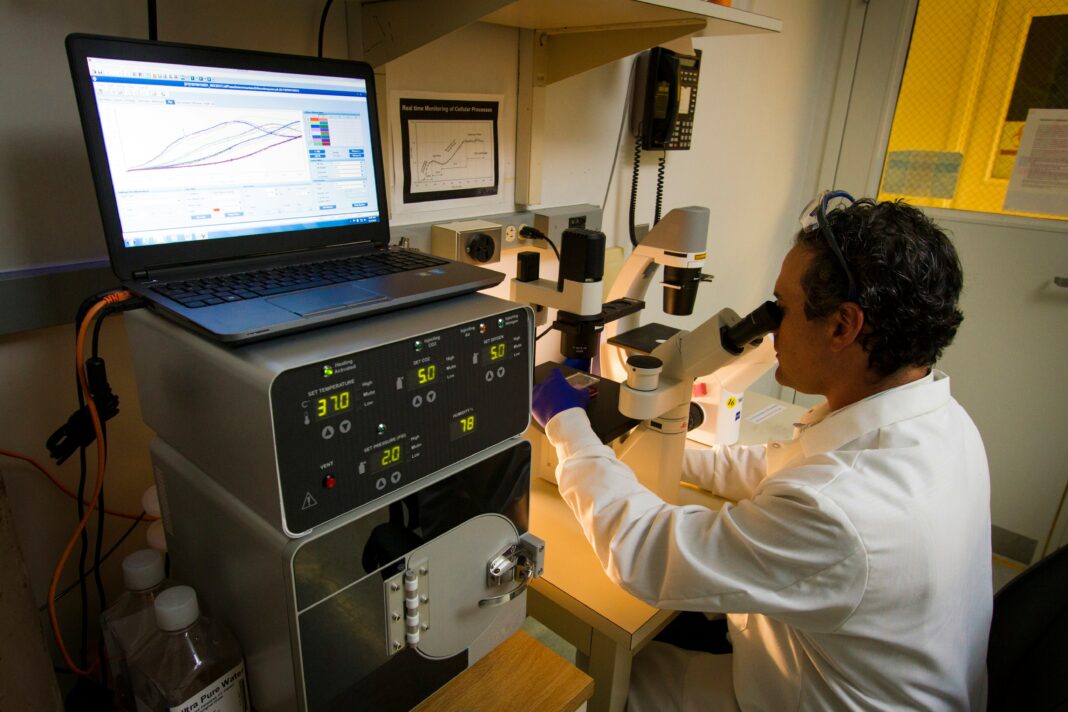In the rapidly evolving world of healthcare, artificial intelligence (AI) has emerged as a transformative power. AI technologies are revolutionizing how medical professionals diagnose diseases, develop personalized treatment plans, and manage patient care. Predictive analytics that forecast patient outcomes and natural language processing that assists in documentation are being introduced as well [1].
As Dr. Eric Topol, a leading figure in digital medicine, states, “AI can help us analyze data and make decisions at a speed and scale that humans alone cannot.”
However, as reliance on AI increases, so do data privacy, security, and integrity concerns. The healthcare industry generates massive amounts of sensitive patient data, making it a prime target for cyberattacks. This is where blockchain technology comes into play.
With its decentralized and immutable ledger, blockchain offers a solution to many of the challenges faced by AI in healthcare [2]. By securely storing patient records, blockchain ensures that the data used by AI algorithms is accurate and protected from unauthorized access [3]. Each transaction whether a health record update or an AI-driven diagnosis, is transparently recorded, providing a traceable history that enhances accountability.
AI and blockchain can create a more secure and efficient healthcare ecosystem. For instance, blockchain can facilitate the seamless sharing of patient data across different healthcare providers while preserving patient consent and privacy. Moreover, AI can analyze this comprehensive dataset, uncovering insights that lead to better patient outcomes.

The intersection of AI and blockchain has the potential to revolutionize healthcare, making it more efficient, transparent, and patient-centered
Meanwhile, the rise of artificial intelligence in healthcare offers an equally exciting promise. AI, powered by advanced algorithms and machine learning can sift through massive amounts of medical data, detecting patterns and insights that might elude even the most experienced human eyes. Today, AI is already employed in the early detection of diseases like cancer, analyzing medical images with a speed and precision that significantly outpaces traditional methods.
AI refines diagnostic rather than just augmenting human judgment. A radiologist reviewing an MRI scan can use AI to highlight anomalies that might have otherwise, gone unnoticed. Similarly, AI can compare patient’s data to millions of other records, offering predictive insights into their future health risks [4]. This blend of human expertise and machine precision represents a powerful shift towards more personalized, accurate medical care.
In this constantly evolving new world, the doctor and the machine will work hand in hand, guided by data that is secure and intelligent, paving the way for a healthier tomorrow.
References:
- Ahuja, A.S., The impact of artificial intelligence in medicine on the future role of the physician. PeerJ, 2019. 7: p. e7702.
- Ghosh, P.K., et al., Blockchain Application in Healthcare Systems: A Review. 2023. 11(1): p. 38.
- Abid, H., et al., Blockchain technology applications in healthcare: An overview. International Journal of Intelligent Networks, 2021. 2: p. 130-139.
- Alowais, S.A., et al., Revolutionizing healthcare: the role of artificial intelligence in clinical practice. BMC Med Educ, 2023. 23(1): p. 689.

Sadaf Sarfraz, currently a lecturer, holds an MPhil in Molecular Pathology and Genomics, complemented by a BSc in Medical Laboratory Technology. Contributing as a healthcare writer at Scientia-Pakistan, she passionately engages in calligraphy and art.

